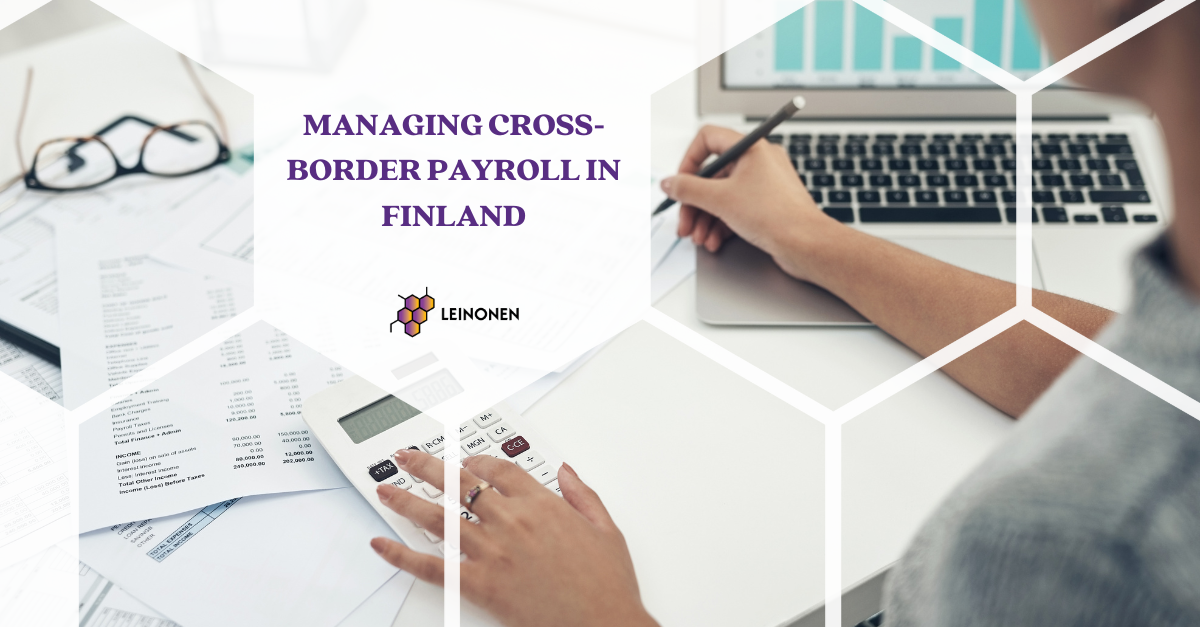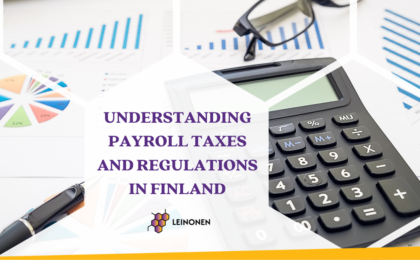The World Bank Group’s ‘Doing Business 2020’ research awarded Finland an impressive overall ‘Ease of Doing Business’ score of 80.2, ranking it at number 20 of 190 countries. A nation full of opportunity and innovation, Finland also scored exceptionally highly in both ‘starting a business’ (93.5) and ‘trading across borders’ (92.4).
But while doing business in a country like Finland can present valuable new opportunities, cross-border payroll can be confusing. Even if you plan to stay within the bounds of the European Union (EU), you will likely find different rules in different countries. Familiarising yourself with relevant legislations early can save hassle, time and money in the long run.
What are the Different Types of Cross-Border Payroll in Finland?
Overall, there are two potential cross-border payroll situations in Finland. These are:
- Foreign Employer. In most cases, salaries must be calculated and reported to the Incomes Register in line with Finnish legislation. Therefore, some of the most common issues faced by foreign employers with employees in Finland surround understanding Finnish taxation rules and communicating with Finnish authorities.
- Foreign Employee. In the case of a company in Finland hiring a foreign employee, the business must verify and keep a record of an employee’s right to work in the country. They must also ensure minimum Finnish terms and conditions of employment are adhered to. Posted workers are subject to separate legislation that can be found in the Act on Posting Workers.
What is the Difference Between Local and Cross-Border Payroll in Finland?
In practise, there is little difference between local and cross-border payroll in Finland. This is because:
- Foreign employees have the same rights (and obligations) as Finnish employees.
- The minimum Finnish terms and conditions of employment must be observed when employing both local and foreign employees.
- The same software and legislation are used for all payroll calculations.
How to Employ a Person Cross-Border
When employing a foreigner as a business in Finland, employers have a few key obligations. Firstly, they must check the person has a valid Finnish work permit. They must keep a record of this and inform the authorities about the employment. Foreign employees should then simply be treated the same as a local employee, with the employer adhering to the minimum Finnish terms and conditions of employment.
For payroll calculations, the employer will need the employee’s contract, contact information and their Finnish tax card. For posted workers insured in their home country, an A1 (or other social insurance) certificate is also required.
What About Remote Working in Finland?
As a rule, any work in Finland must be done in accordance with Finnish legislation. This includes remote work done in Finland by employees of any nationality. For instance, when a person works remotely in Finland for a foreign employer, the employer is responsible for arranging statutory social security for their employee in Finland.
Who is Responsible for Taxes in Finland?
Employers are usually responsible for handling taxes in Finland. However, non-tax residents may be responsible for reporting all income made in Finland to Finnish Tax Administration, and for making their own tax contributions. For example, if an employee has an A1 certificate or a non-tax resident tax card, social insurance contributions are not applied in the payroll. In these cases, the employer may authorise an employee to take out statutory insurance (with a Finnish insurance company) on their behalf.
Key Issues for Consideration When Managing Cross-Border Payroll in Finland
Social Insurance for Finnish Residents Working Abroad
Within the EU, a person working abroad is generally covered by the social security laws of the country they are working in. This means their social security contributions are paid to that country’s authorities. However, if a Finnish employee is going to work in an EU/EEA country, Switzerland, or a country Finland has a social security agreement with, they can apply for a certificate allowing them to continue being covered by Finnish social security.
Personal Taxation of Foreign Employees in Finland
A foreign employee’s personal taxation depends on the length of their stay in Finland:
- >6 months. If a foreign employee is in Finland for more than six months, their income from both Finland and abroad is taxable in Finland. This is because they are in the country long enough to be considered a resident taxpayer.
- <6 months. If they are in Finland for less than six months, only income received from Finland is taxable in Finland. This makes them a non-resident taxpayer, and typically applies to employees who live in another country but make short trips to Finland for work.
Tax treatment can sometimes also depend on whether a person works for a Finnish or foreign employer, and special rules apply to some professions. It is important to note that until a foreign employee can provide their employer with a tax card or tax-at-source card, the employer must withhold 60% tax on their gross salary.
Where can you Find Further Information on Cross-Border Payroll in Finland?
Official government and tax authority sources are a great place to find accurate information on cross-border payroll issues in Finland. For example:
- Finnish Tax Administration website: https://www.vero.fi/en/individuals/
- Finnish Centre for Pensions website: https://www.etk.fi/en/
- Website of the Occupational Safety and Health Administration in Finland: https://tyosuojelu.fi/en/home
Get Help Managing Cross-Border Payroll in Finland
With more than three decades of experience managing tax, payroll and accounting for businesses across Europe, Leinonen can help you competently manage cross-border payroll in Finland. Our expert payroll accountants have already helped over 100 foreign-owned businesses seamlessly set up base and hire in Finland.
To find out more about our services and how we can support your company as you move into Finland, get in touch today.




